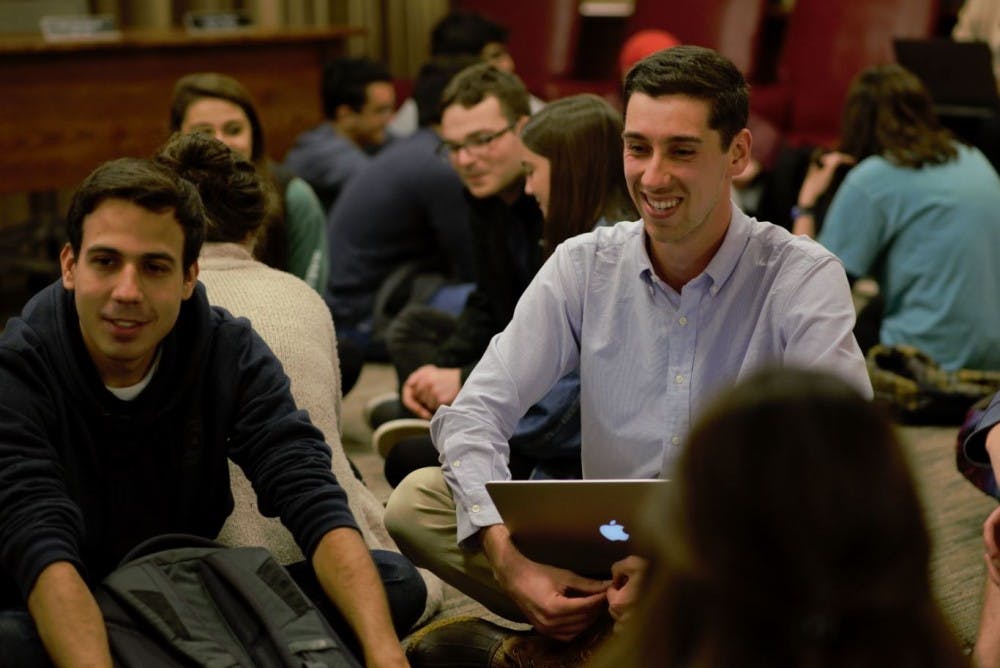Starting this year, the University Judiciary Committee no longer required applicants to take a preliminary multiple choice and short answer exam to become a member. UJC announced this summer that it would be reforming its application process so that students could apply for appointed positions.
More specifically, the counselor pool, investigator pool and First Year Judiciary Committee body were selected through an online essay-based application, followed by one group interview and one individual interview.
To apply to be a representative for UJC, a student must have been at the University for at least three semesters. The UJC is the student-run governing body responsible for investigating and trying potential violations to the University’s Standards of Conduct, which address behavior such as the damage of or unlawful entry onto University property, disorderly conduct on University property or the violation of state or federal laws.
Kevin Warshaw, a fourth-year Engineering student and chair of UJC, said the previously-used 40-question test included multiple choice questions related to UJC history and practical scenarios of violations of the Standards of the Conduct, which students had to identify. At the end of the test, students were asked to briefly write about themselves and what motivated them to pursue a position with the UJC. Performance on the exam was then used to determine which students would advance to the interview process.
“We found that that wasn’t necessarily the best metric for whether or not someone was qualified to be on the UJC,” Warshaw said. “How well you can memorize something is great for classroom performance, but you’re not speaking from memory. We’re not giving exams during trials. It’s a different type of quality that we’re looking for.”
Warshaw added that the updated essay-based application — made up of three short answer questions — allows students to demonstrate in writing why they would be a good fit to join the committee, as well share any past experiences that would be relevant to the positions they seek.
This year, UJC received a total of 83 applicants for the First-Year Judiciary Committee — which Warshaw said is similar to previous years.
“The fact that it was a more significant time commitment on the part of the applicant, and that number still held steady for how many people actually applied — we saw that as overall positive,” Warshaw said. “We expected fewer applications since it was a little bit more of a requirement.”
The FYJC is a body of 12 first-year students who sit as judges on cases of alleged violations of the Standards of Conduct committed by first-year students. Although a subsidiary of the UJC, the FYJC is granted the same sanctioning authority as the UJC and operates under the same by-laws and trial procedures.
First-year College student Nijat Khanbabayev and first-year Engineering student Gustavo Moreira, the newly selected chair and vice chair of the FYJC, respectively, began their duties this week with their first round of trials.
The UJC also announced at its biweekly general body meeting Sunday that eight students were selected as educators, who serve as outreach representatives. Nine were chosen as investigators — who interview witnesses and record trial proceedings — and 14 students as counselors, who serve as advocates for accused and complainant parties going through the UJC trial system.
Students interested in becoming an educator for the UJC — which serves to inform the community about its role as the University’s judicial body — can submit a Google form application on a year-round basis.







